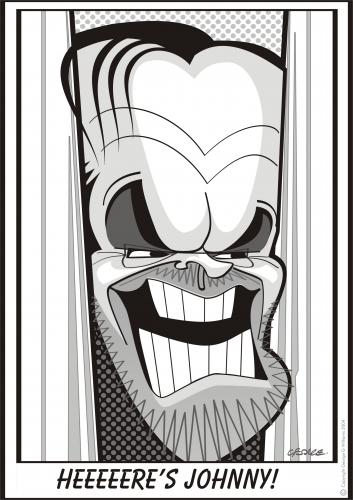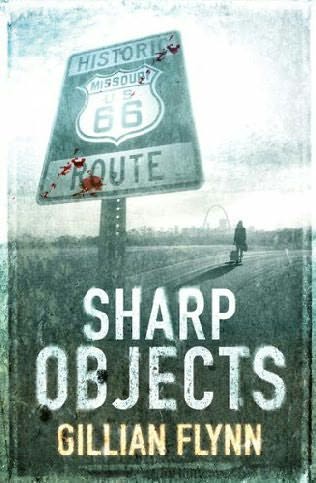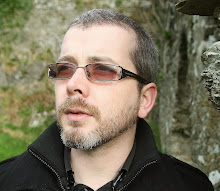 Lucy Caldwell
Lucy Caldwell was born in Belfast in 1981. She won the Peggy Ramsay Award for playwriting and was selected to be a playwright in residence at the National Theatre. Her latest novel
Where They Were Missed is published by Penguin (2006) and made the final list for the
Dylan Thomas Prize in 2006.(Young, talented and beautiful. I want hate her, but having read the first four chapters of Where They Were Missed yesterday I cannot in good conscience refuse to feature her on CSNI. No matter how jealous I am of her achievements. -- Gerard.)
Q1. What are you writing at the minute?My main project at the moment is a new play called Carnival for the forthcoming Belfast Festival about a travelling troupe of circus performers that comes to town. I’m also doing the final edits to a novella, The Furthest Distance, which is due to be published this winter. I’m working on a radio play for BBC R4 about two young students falling in love against the backdrop of Tiananmen Square and attempting my first ever translation – of a contemporary Spanish play. And, somewhere in the background, the rewrites of my second novel are ticking over, too, along with the sketches for a couple of not-too-distant theatre commissions. Sometimes it all feels like trying to juggle too many balls whilst riding a unicycle along an impossibly high tight-rope wire. But other times I feel so buzzing with ideas that not-writing seems the impossibility.
Q2. Can you give us an idea of Lucy Caldwell’s typical up-to-the-armpits-in-ideas-and-time writing day?Ok, so here’s today. Glare at insolently-blinking cursor on Word document. Realise have been glaring at cursor for almost an hour. Glare at pigeons strutting cockily on balcony. Glare at messy heap of invoices and tax returns on table. Sweep messy heap of invoices and tax returns on table into less-messy heap on floor. Feel marginally better. Decide to make another cup of green tea. Watch tea leaves unfurling. Feel soothed by sight. Make a to-do list, careful to make the first few things already done. Feel an utterly unwarranted and irrational but pleasant sense of accomplishment. Make a phone call or two. Write an email or two. The day is getting better. Gaze hopefully (and forlornly) into the biscuit tin in the hope that it’s grown some chocolate biscuits in the ten minutes since I last checked. Read the Guardian theatre & arts online blog. Google (I am copying this directly from my last-searched-for list) Phineaus Barnum, mermaids, the Tredozio region of Bologna, the forthcoming A/W ’08 Marc Jacobs footwear collection (sigh), Abe Books, the MySpace site for Mazzy Star. Realise that it’s already almost midday and so far have deleted more words than have written. Give up and go to yoga.
And sadly, this is an all-too-credible picture of a typical aimless working day! I find that I work best in intensive bursts, or on attachments or residencies. When writing’s going well, I will write for sixteen, eighteen hours straight, unable to sleep, forgetting to eat, feeling lucid and alive and fizzing with energy. But the rest of the time – the dull, uninspired, treading-water periods – it’s a battle to sit down and concentrate; to force yourself to do editing (where all the real work of writing happens), proof-reading, working out knotty problems or plot twists or translations… I do try and follow office-ish hours, and Graham Greene’s trick of making yourself write a certain number of words a day, but I was very heartened to read recently an interview with Claire Keegan, a writer I adore, saying that of course she didn’t write every day – “I’m not a banker,” was the gist of what she said; “writing doesn’t work to office hours.” My days are haphazard and unpredictable and all too often extremely mundane.
Q3. What do you do when you’re not writing?
Oh dear. Given what I’ve just said I do when I AM (supposed to be) writing, I am embarrassed to answer this! If I’m stuck, I go for long walks – I love wandering through the streets of London – or do yoga to clear and still my mind. I read a lot, I go to the theatre a lot; I compose and practice my speech for when I win the Booker prize. Actually, you know, I think I am always writing, even if I’m not physically sitting typing at my computer. I walk through the streets letting stories and plots spool in my head, listening to characters in plays that I’m writing or might write talk or argue with each other; I scribble down phrases or ideas in notebooks and on the backs of receipts or the inside of my underarm; I zone out of conversations because I’ve just had another idea for a story. I underline phrases in books I’m reading because they’re so perfectly crafted or because I might use them as an epigraph; I lie awake at night because the stories and people in my head just won’t let me be. Sometimes I wake with a jolt – or stop dead in the middle of a supermarket aisle – and realise that I’ve somehow solved a problem I didn’t even know I was still thinking about. So perhaps writing is something that you can never really turn on or off…
Q4. Any advice for a greenhorn trying to break into the crime fiction scene?
Read, read, read and write, write, write. Write every day. For years I had some words by the crime writer Walter Mosley pinned to my noticeboard – he said that if you don’t keep a story alive by feeding it and paying it attention every day, it will die, and you won’t be able to resuscitate it, and I have found this to be absolutely true. And I suppose – a bit like the Winona Ryder principle – it’s nice to bear in mind that if you’re ever caught on the wrong side of the law you can always claim it’s for legitimate research?!
Q5. Which crime writer(s) have impressed you this year?
We’ve got a cracking crime writing scene in NI – new books by Colin Bateman and Ian Sansom are always worth looking out for. A non-fiction book called The Hounding Of David Olawule by a writer called Kester Aspden, which I raved about when it came out in hardback a year ago, last week won the CWA Gold Dagger award. And I can’t wait for Clare Clark’s next book, which should be due out next year – she’s a fantastic writer of historical crime fiction.
Q6. What are you reading right now?
A book of Romani folk-lore and proverbs; a brilliant non-fiction book by Diane Ackerman called A Natural History Of The Senses; Tom Murphy’s Collected Plays 3, Lorrie Moore’s Collected Stories, Kierkegaard’s novella The Seducer’s Diary… I always have various different books on the go for different moods (or handbag sizes!)
Q7. Plans for the future?
See question number one?!
Q8. With regards to your writing career to date, would you do anything differently?
Yeah. I’d write a first novel that gets on Richard & Judy and tops the bestseller lists for weeks, instead of one which is yet to earn me my first royalty payments.
Q9. Anything you want to say that I haven’t asked you about?
I’d like to say how glad I am that Salman Rushdie’s Midnight’s Children won the Best Of The Booker – I thought it utterly deserving of the prize. On a similar note I’d like to say how brilliant Italo Calvino’s Invisible Cities is: it’s a book every writer, or wannabe writer, or reader, should read. I was re-reading it last night – I keep it on my bedside table, in fact, although I can quote huge chunks of it by heart. But talking of bedside tables, I’m glad you didn’t ask me what books are currently on mine because I’d’ve had to lie. Because (Calvino and one or two other favourites aside) I find that the books that pile up there tend to be the dense, heavyweight, intellectual sort of books that you always mean to read but somehow never get around to (or can’t quite face) starting, and you sound incredibly pretentious when you list them… Apart from that, I’d just like to say thanks – you’ve very enjoyably used up my thousand words for the day and now I can go and drink rose in the park with a clear (ish) conscience.
Thank you, Lucy Caldwell!



















